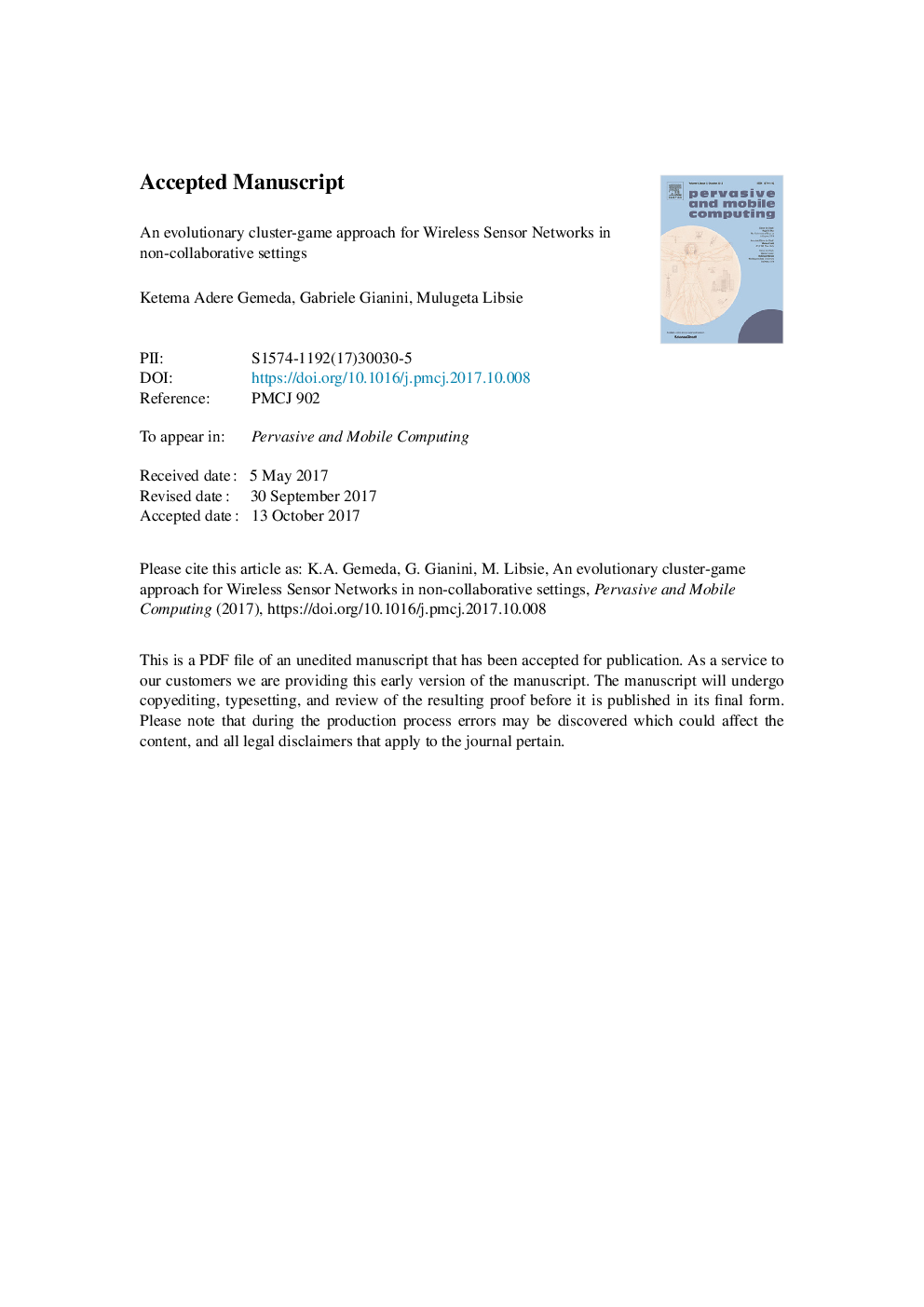| Article ID | Journal | Published Year | Pages | File Type |
|---|---|---|---|---|
| 6888683 | Pervasive and Mobile Computing | 2017 | 16 Pages |
Abstract
Wireless Sensor Networks typically consist of a large number of sensor nodes with constrained resources. Cluster-based routing algorithms for WSNs try to preserve battery power by grouping nodes into multiple clusters: a single node in each cluster, the Cluster Head (CH), communicates with a Base Station on behalf of the others. In an ideal collaborative setting, sensor nodes should alternate in the role of CH. However, the cooperation of nodes is not granted in WSNs with more than one governing authority, where sensor nodes can behave selfishly, in order to save their own resources. In this paper, we propose a novel evolutionary cluster-head determination algorithm called GREET, based on an Evolutionary Game Theory (EGT) approach. In the proposed algorithm, individual nodes adapt their strategies on the basis of the outcomes of the interactions with other nodes and converge to an Evolutionary Stable Strategy (ESS) equilibrium. We show that this ESS corresponds to one of the desired behavioral outcomes. This outcome is obtained without the support of external cooperation enforcement mechanisms. In the study, we use an analytic model of the population evolution, based on the so-called replicator dynamics, as a guide in the choice of the mechanisms, then we adapt the approach to realistic more scenarios. We show, by means of a systematic simulation study, that the algorithm extends the network lifetime and provides a better packet throughput, w.r.t other standard WSN algorithms, such as LEACH and CROSS.
Related Topics
Physical Sciences and Engineering
Computer Science
Computer Networks and Communications
Authors
Ketema Adere Gemeda, Gabriele Gianini, Mulugeta Libsie,
